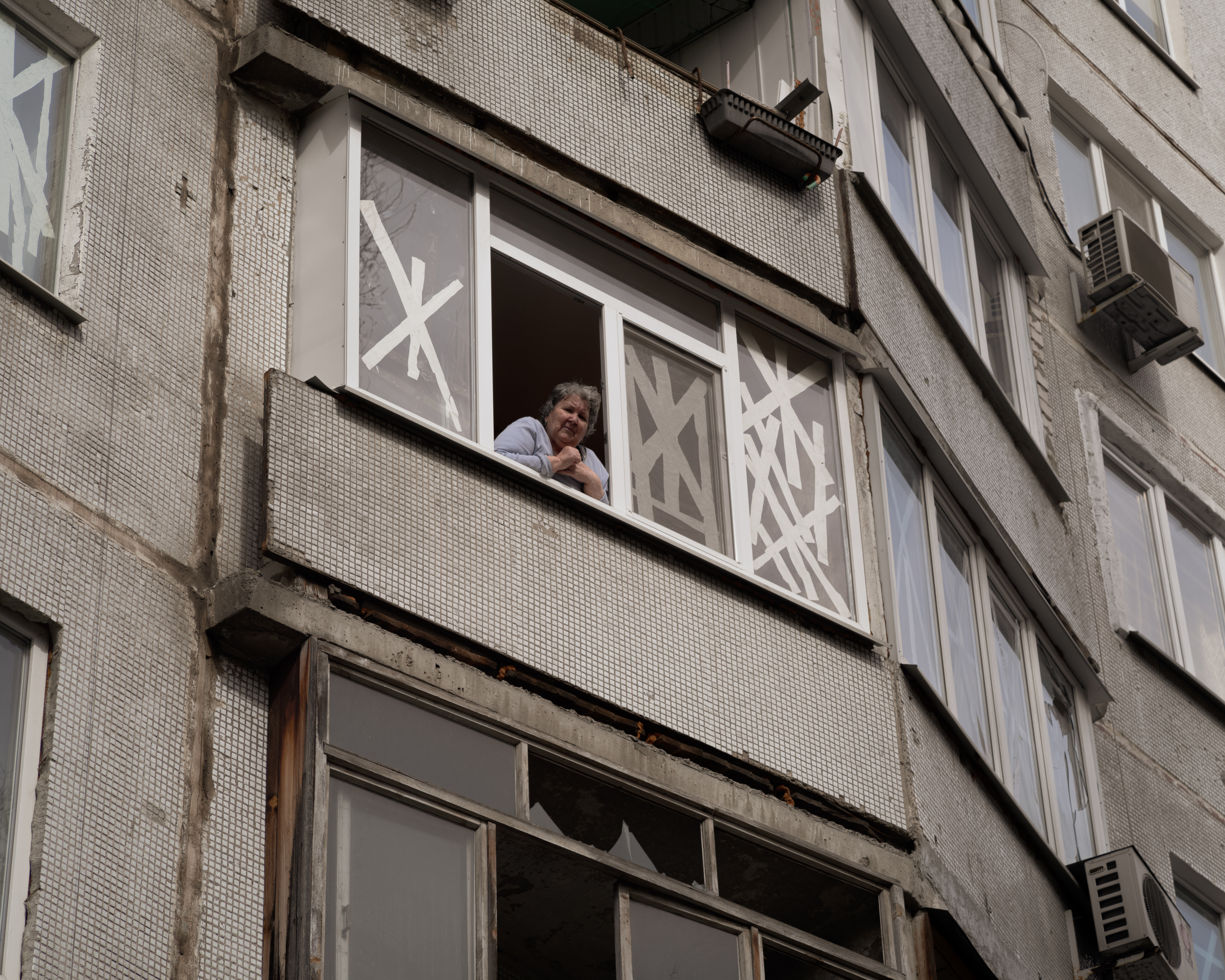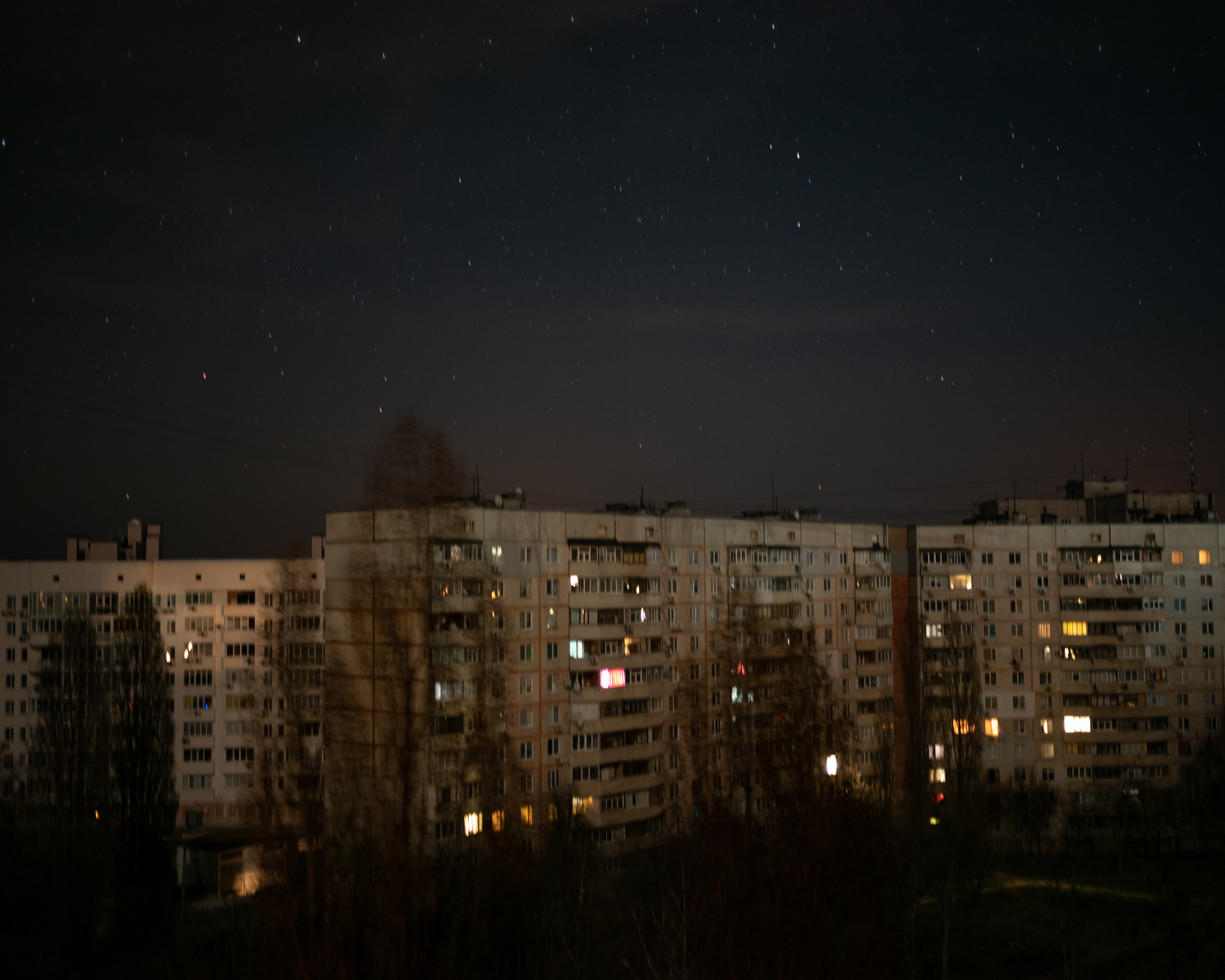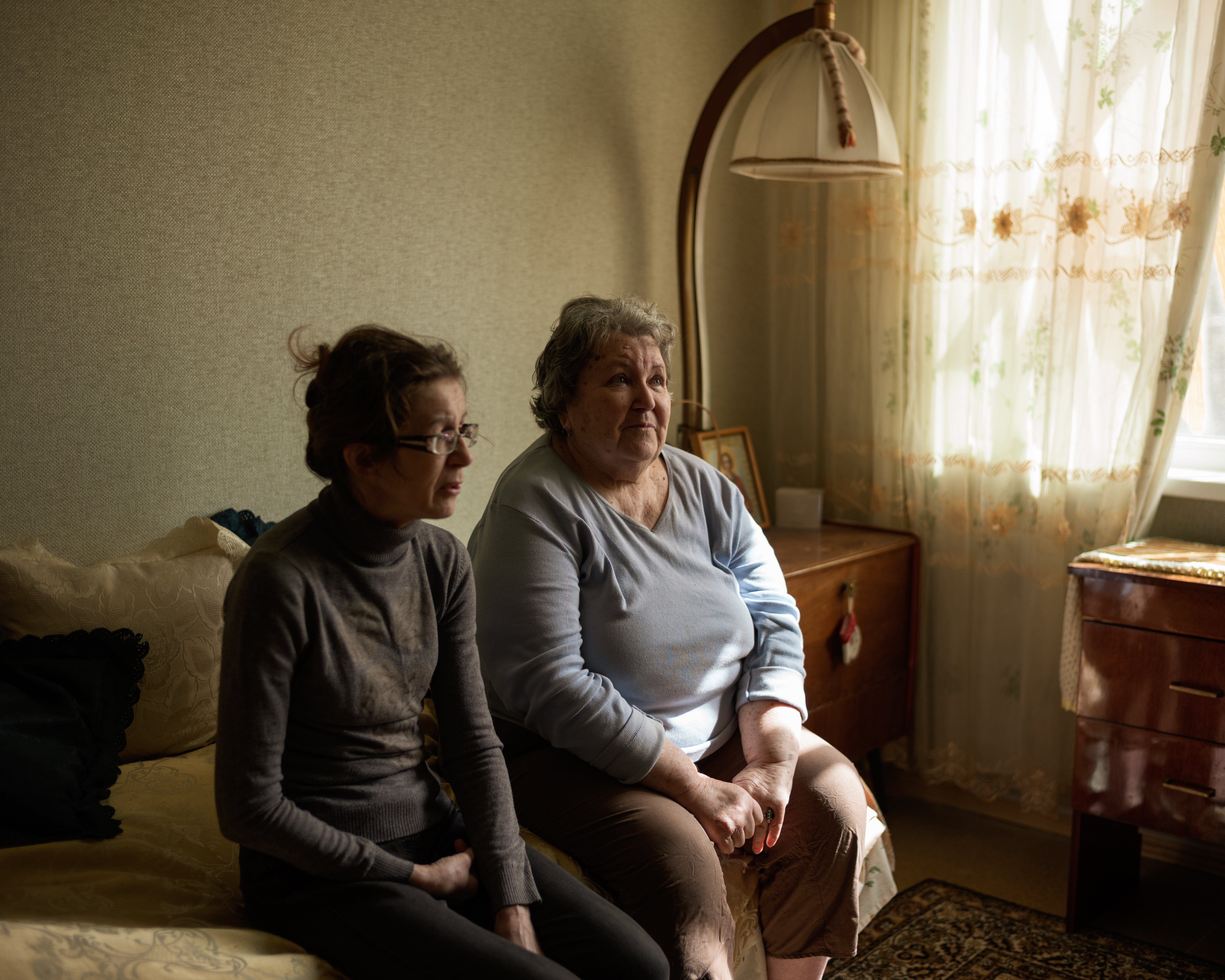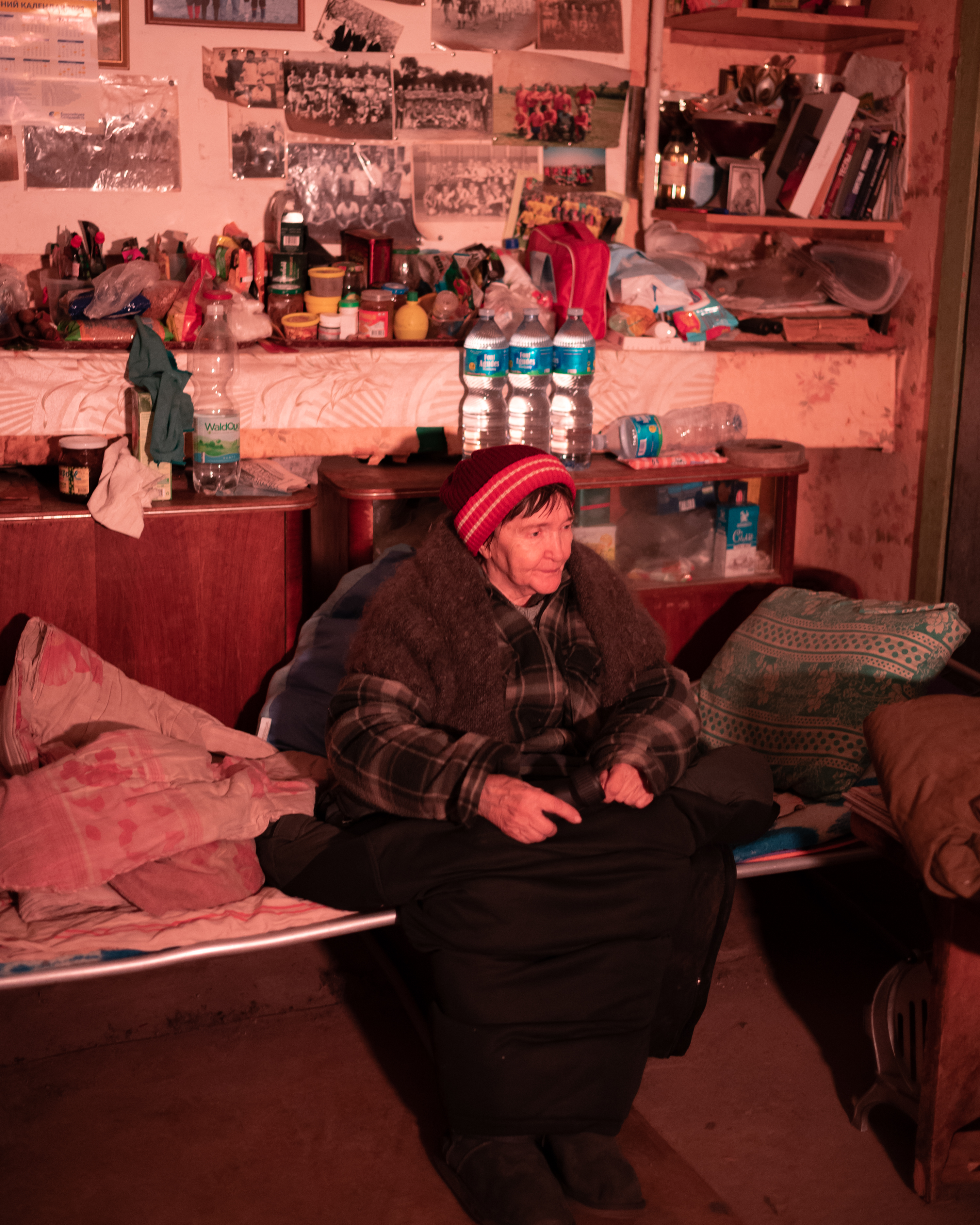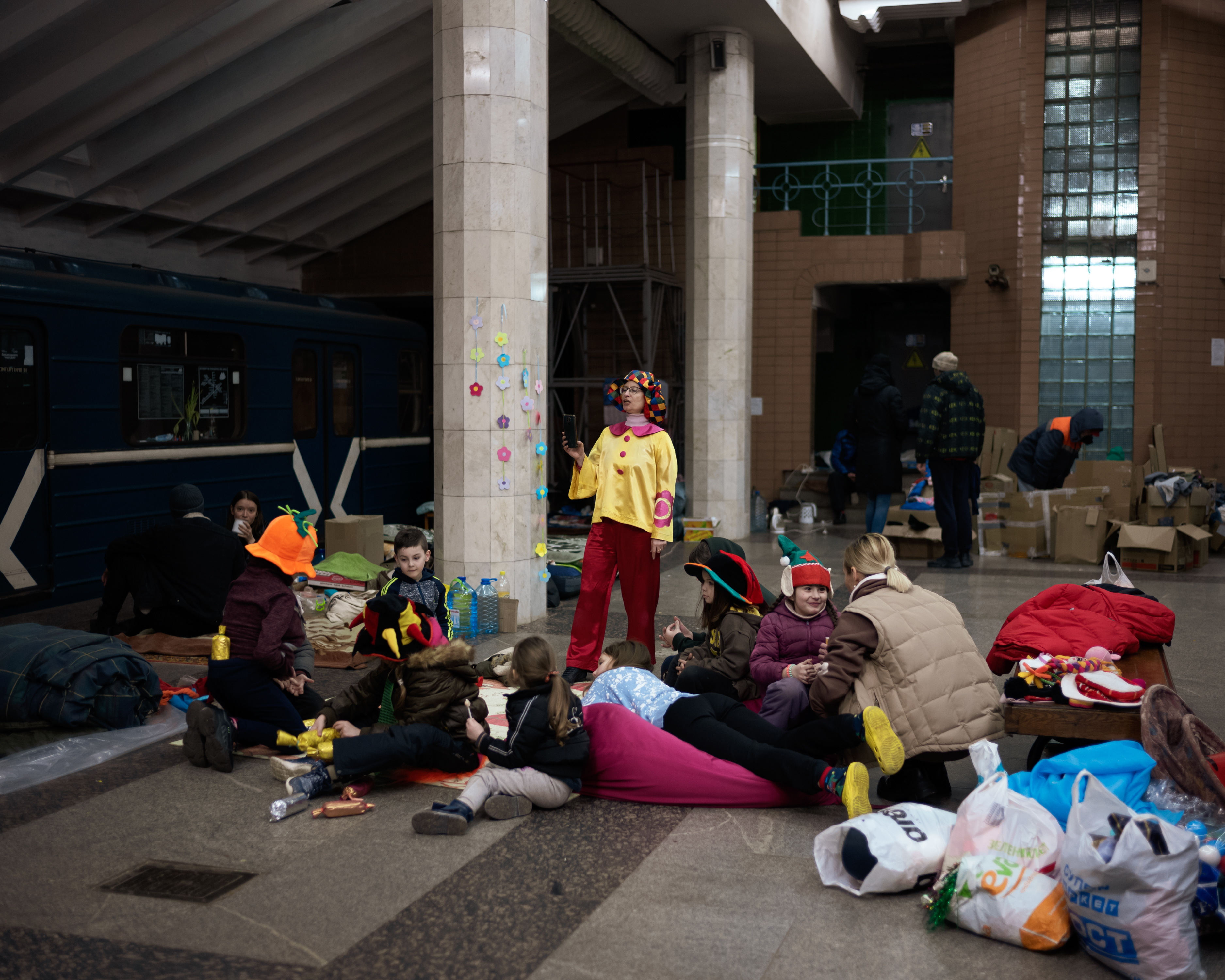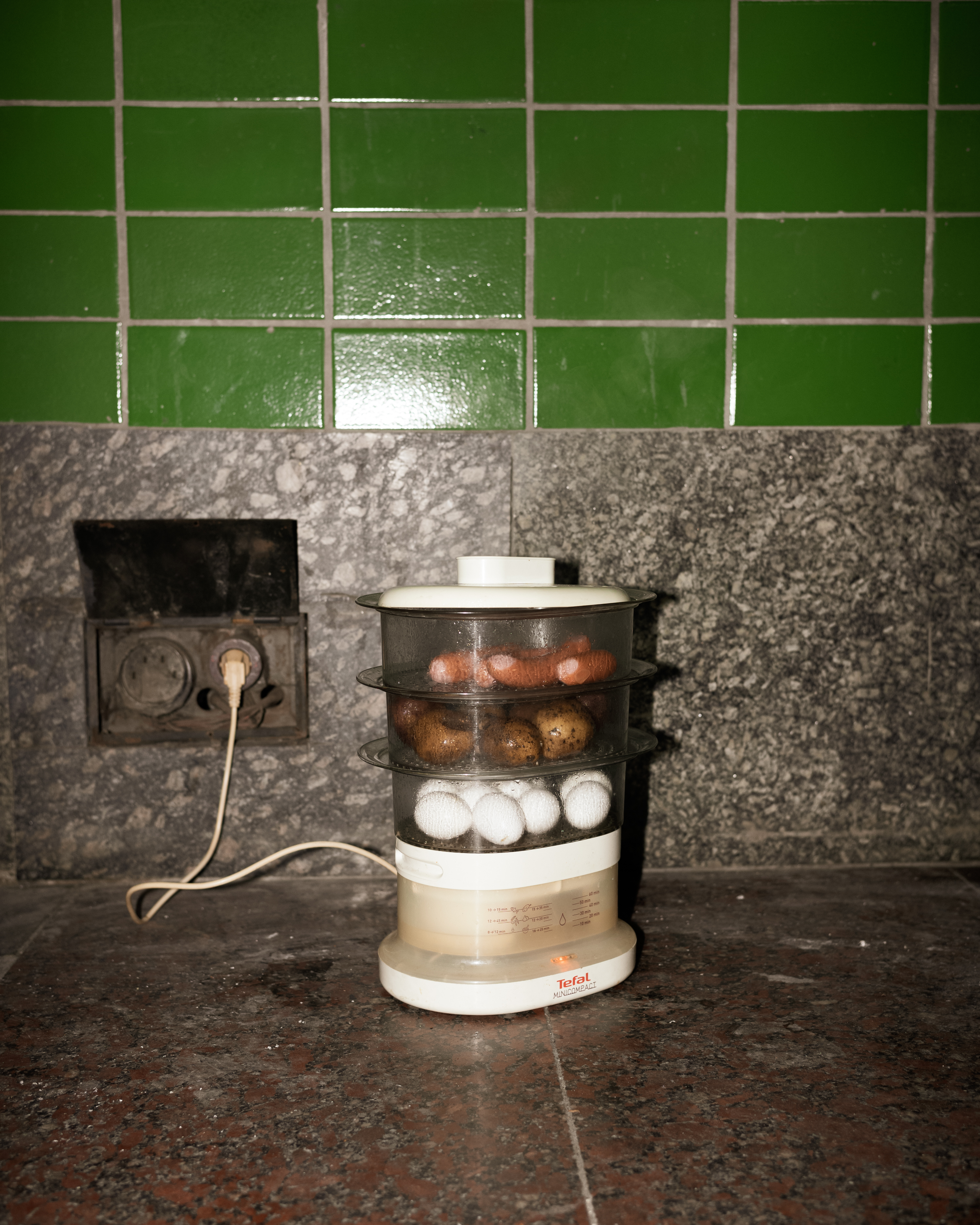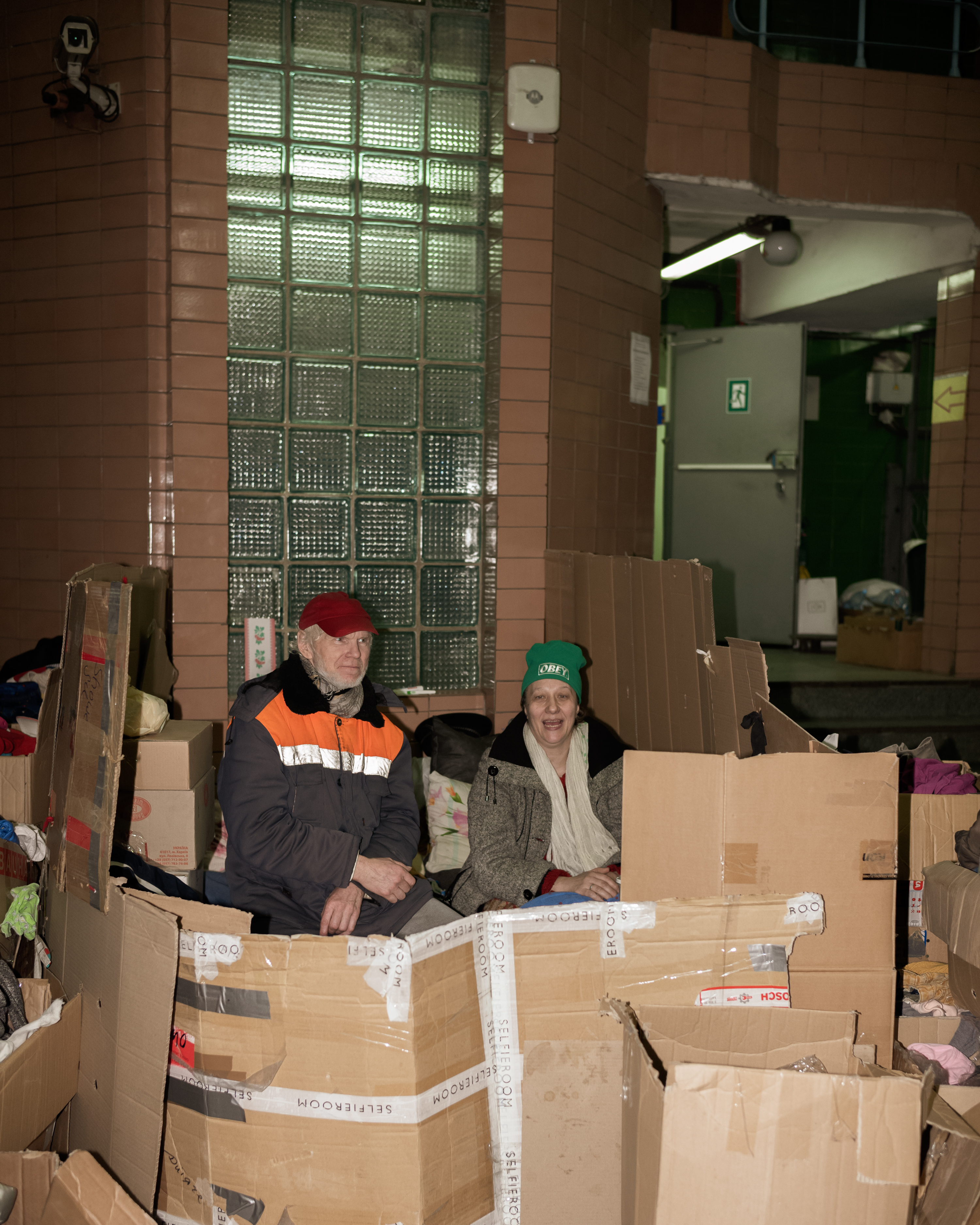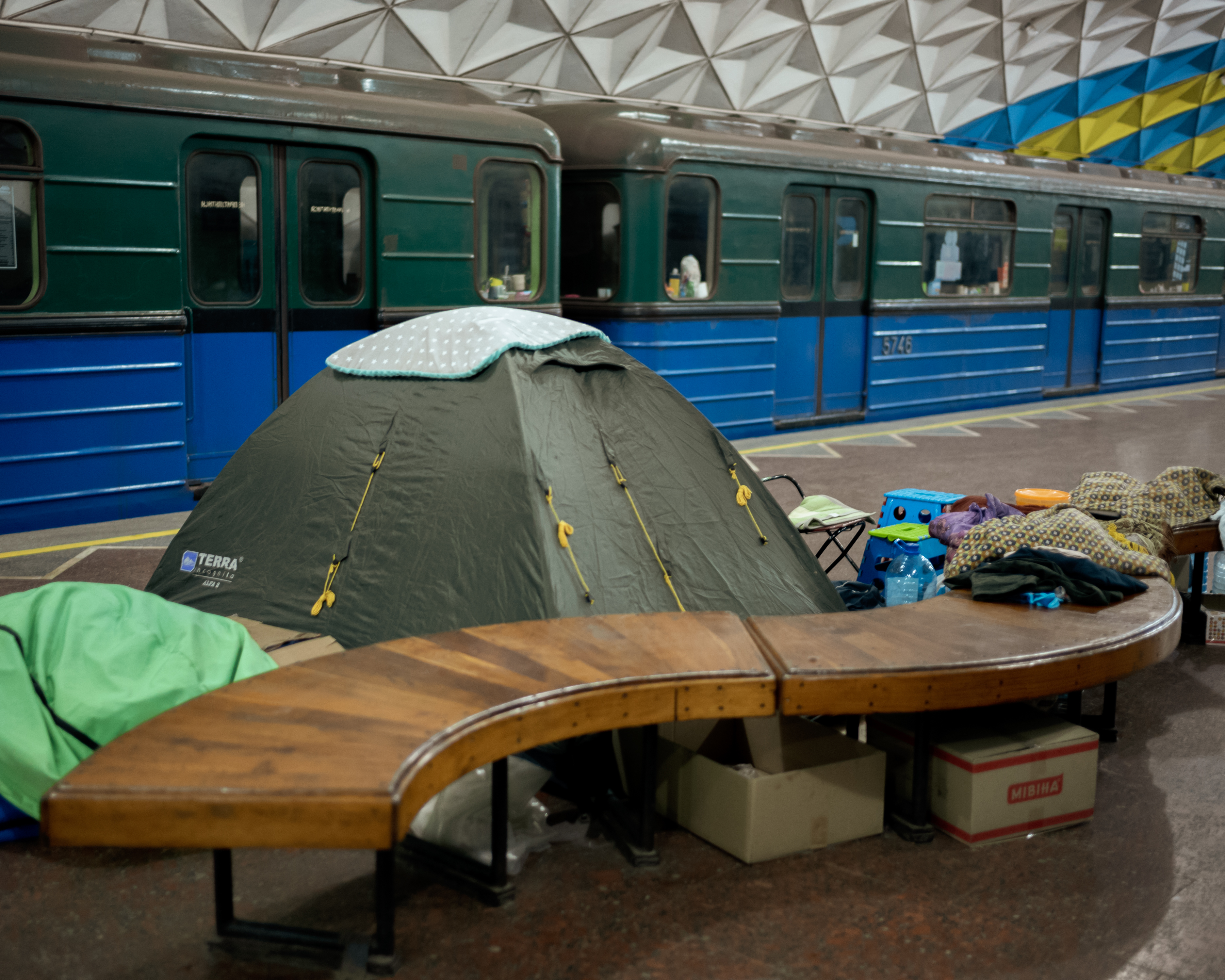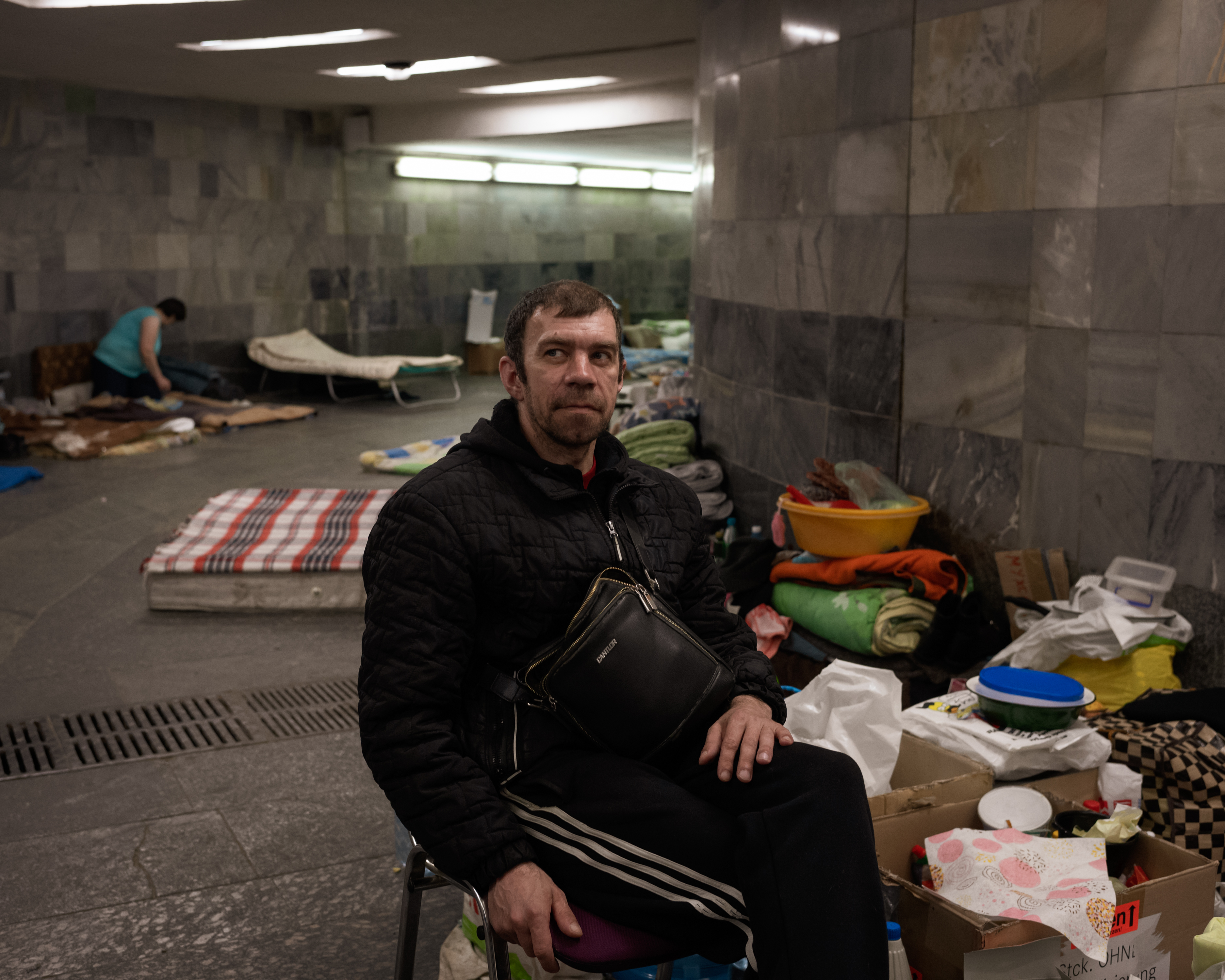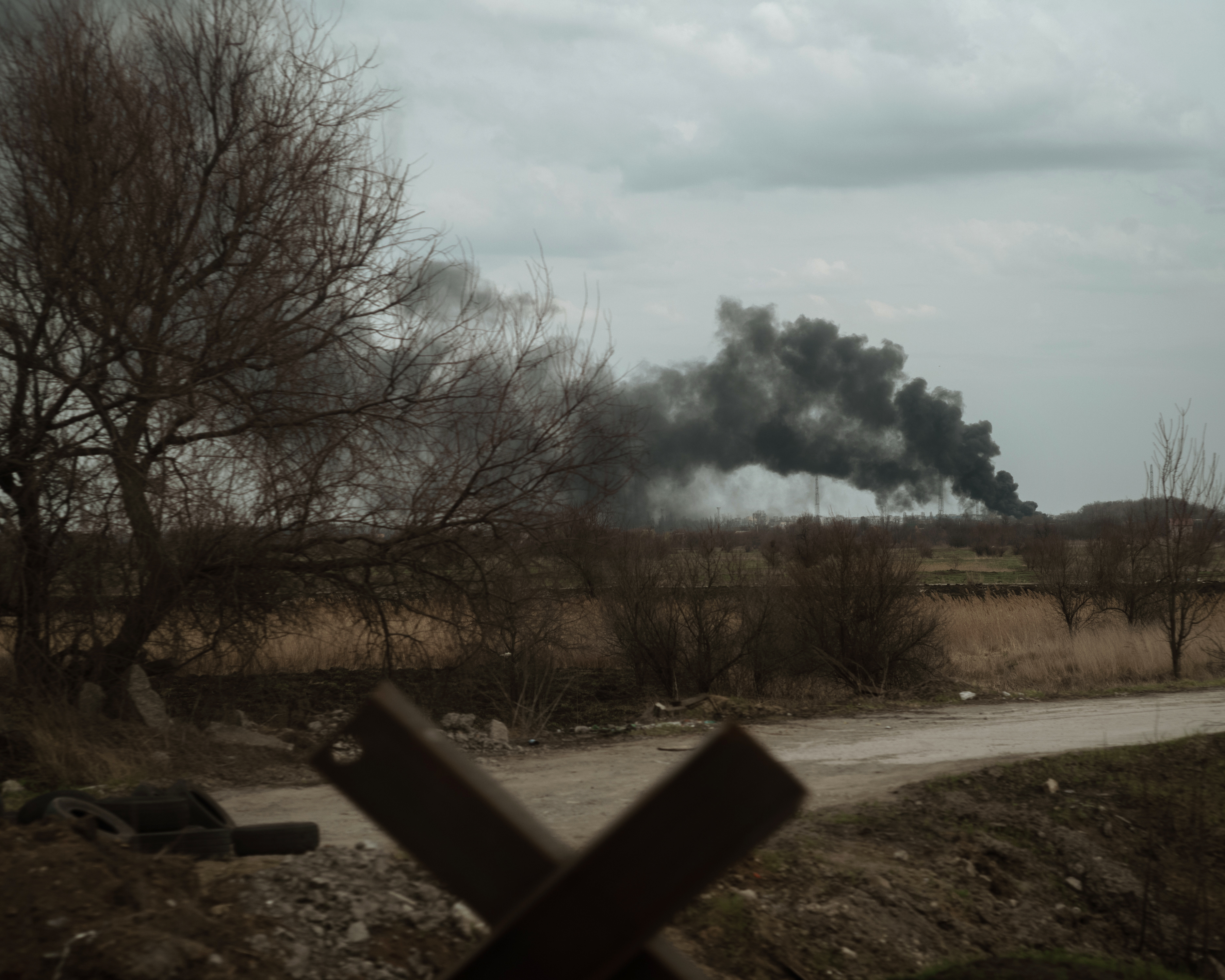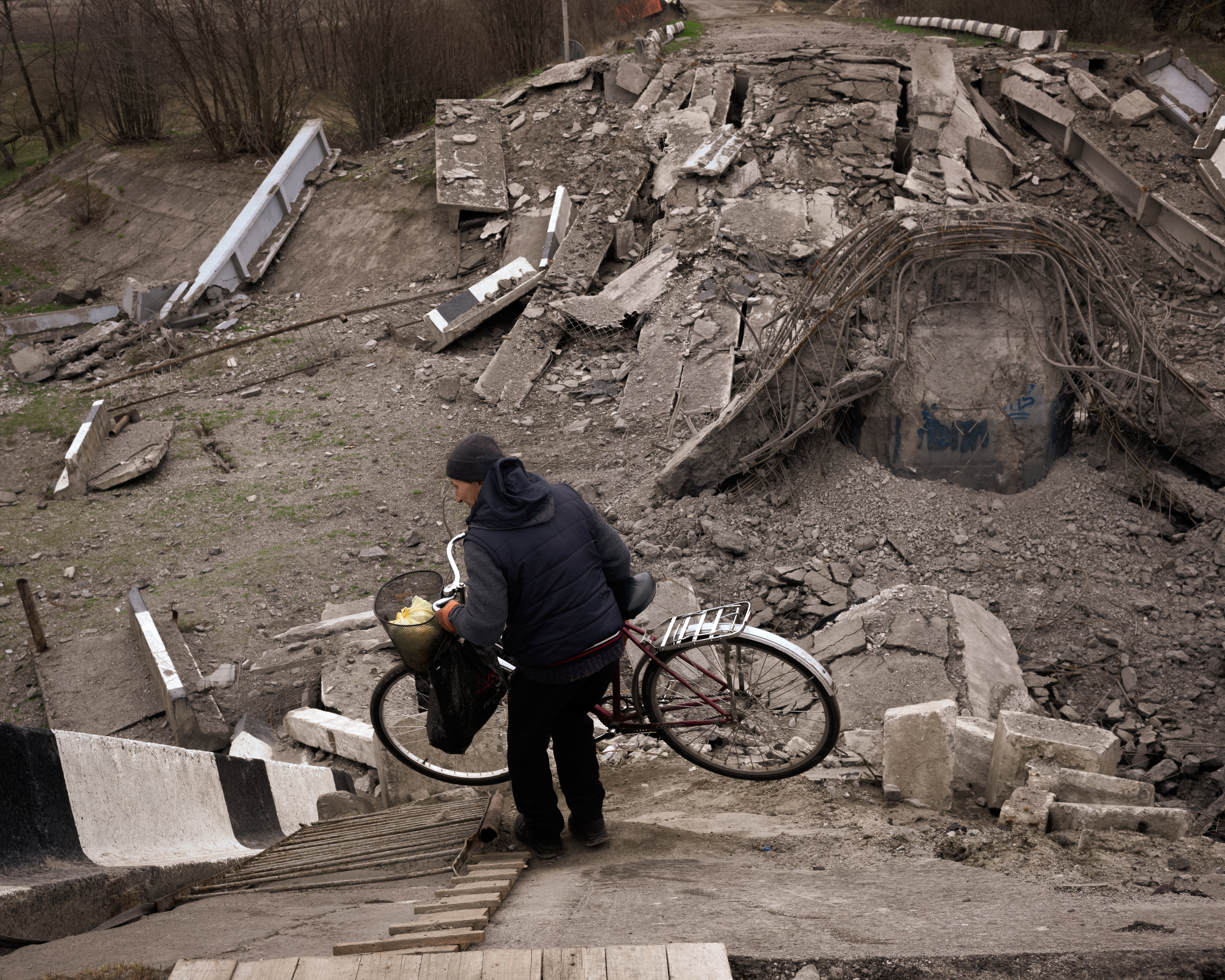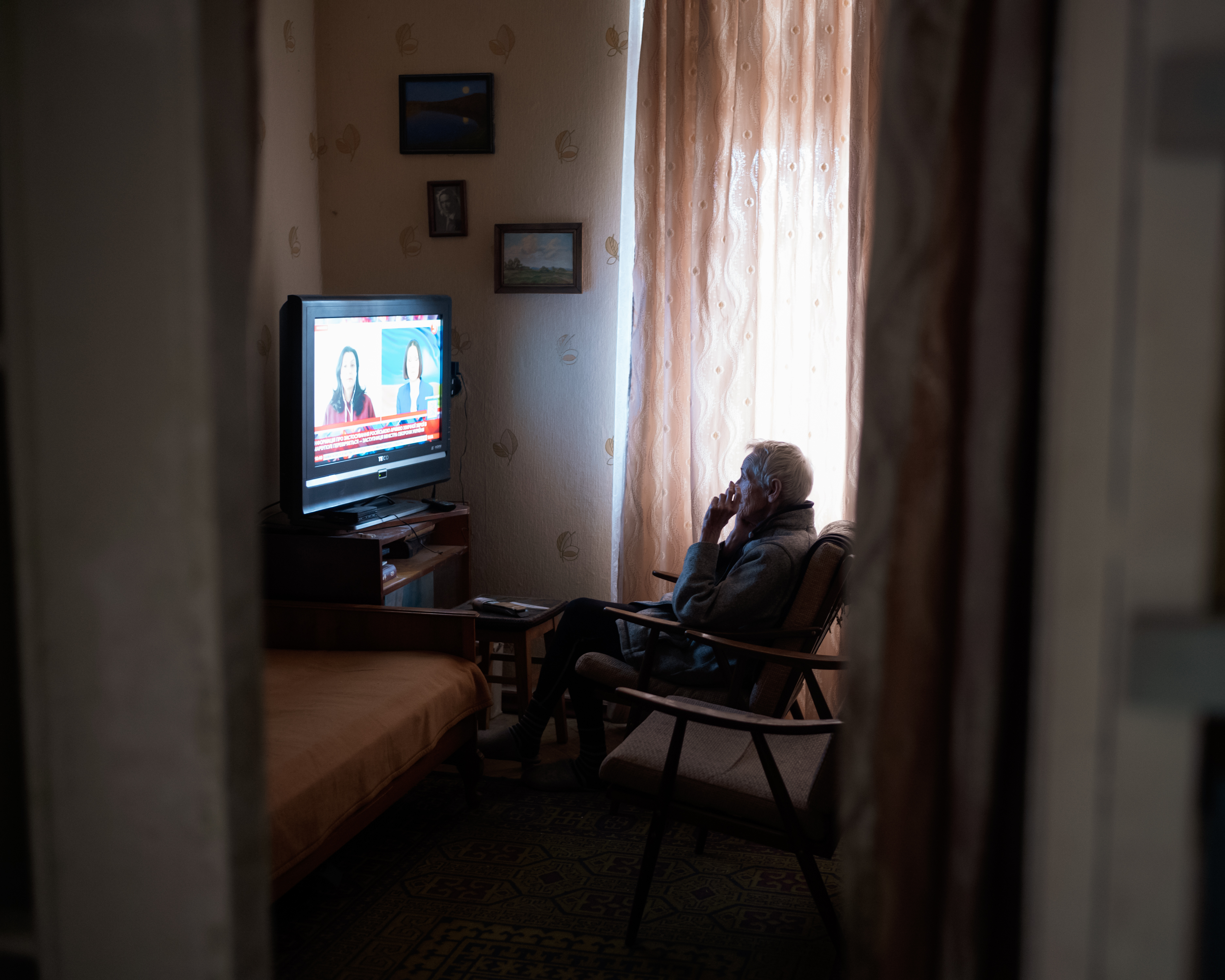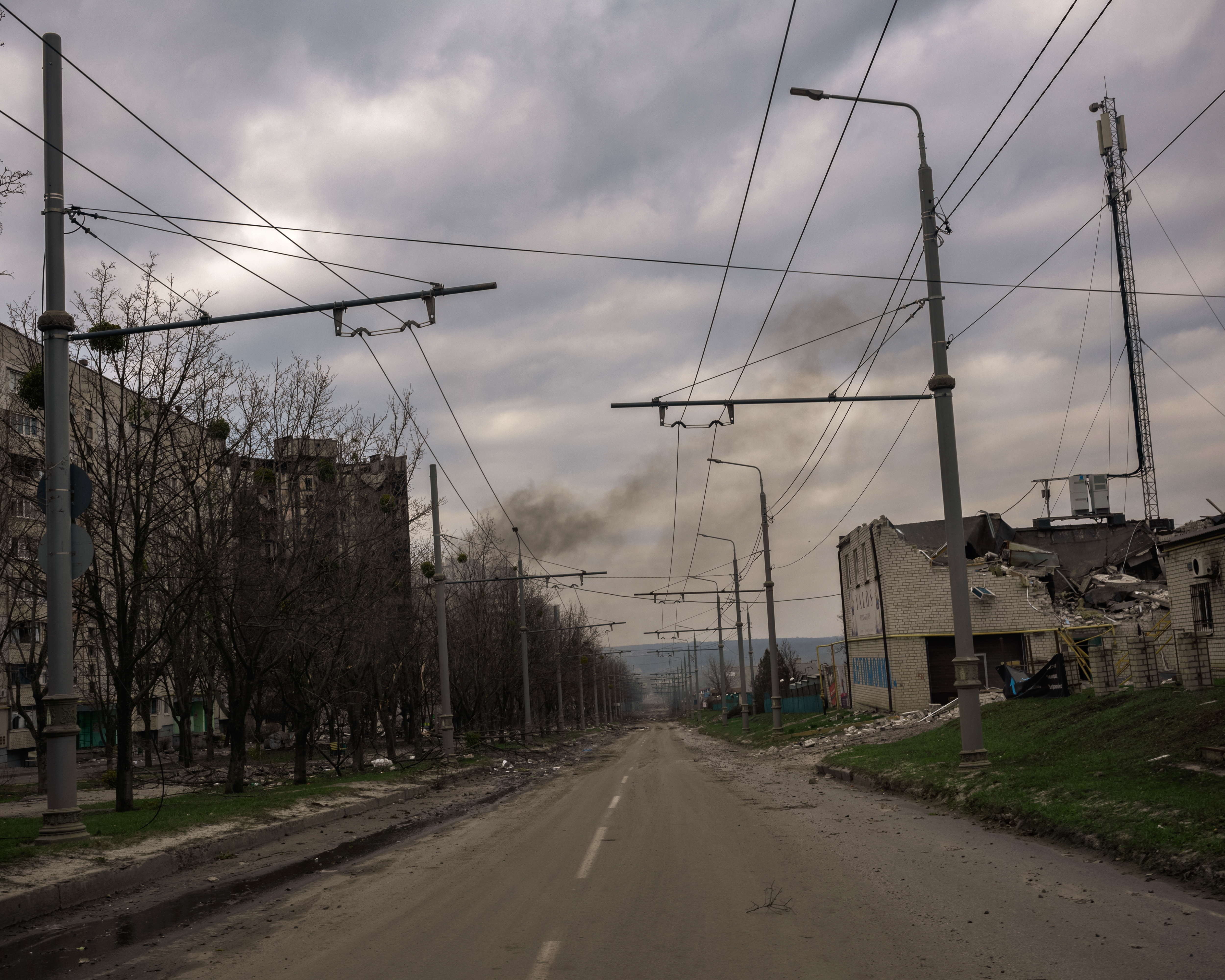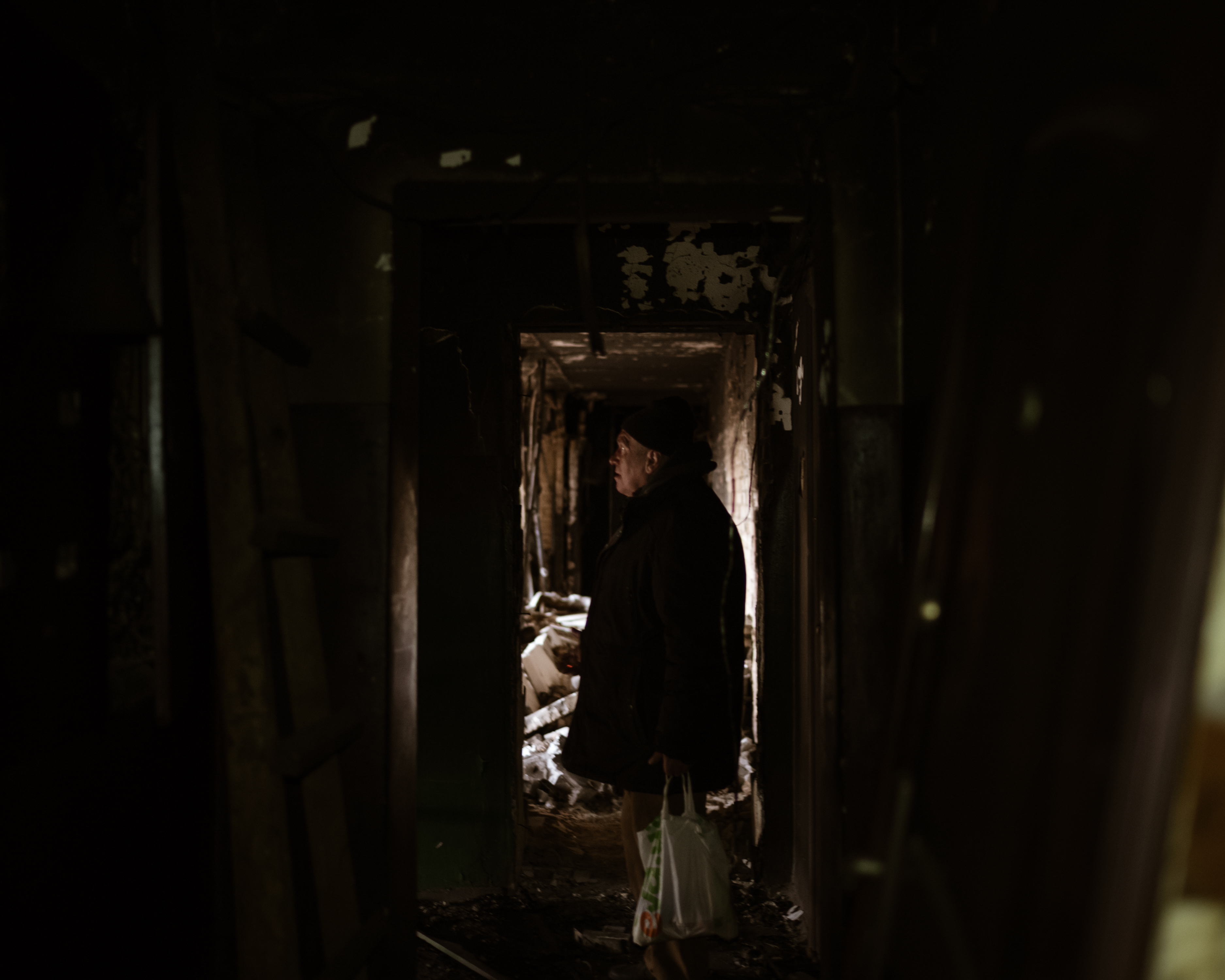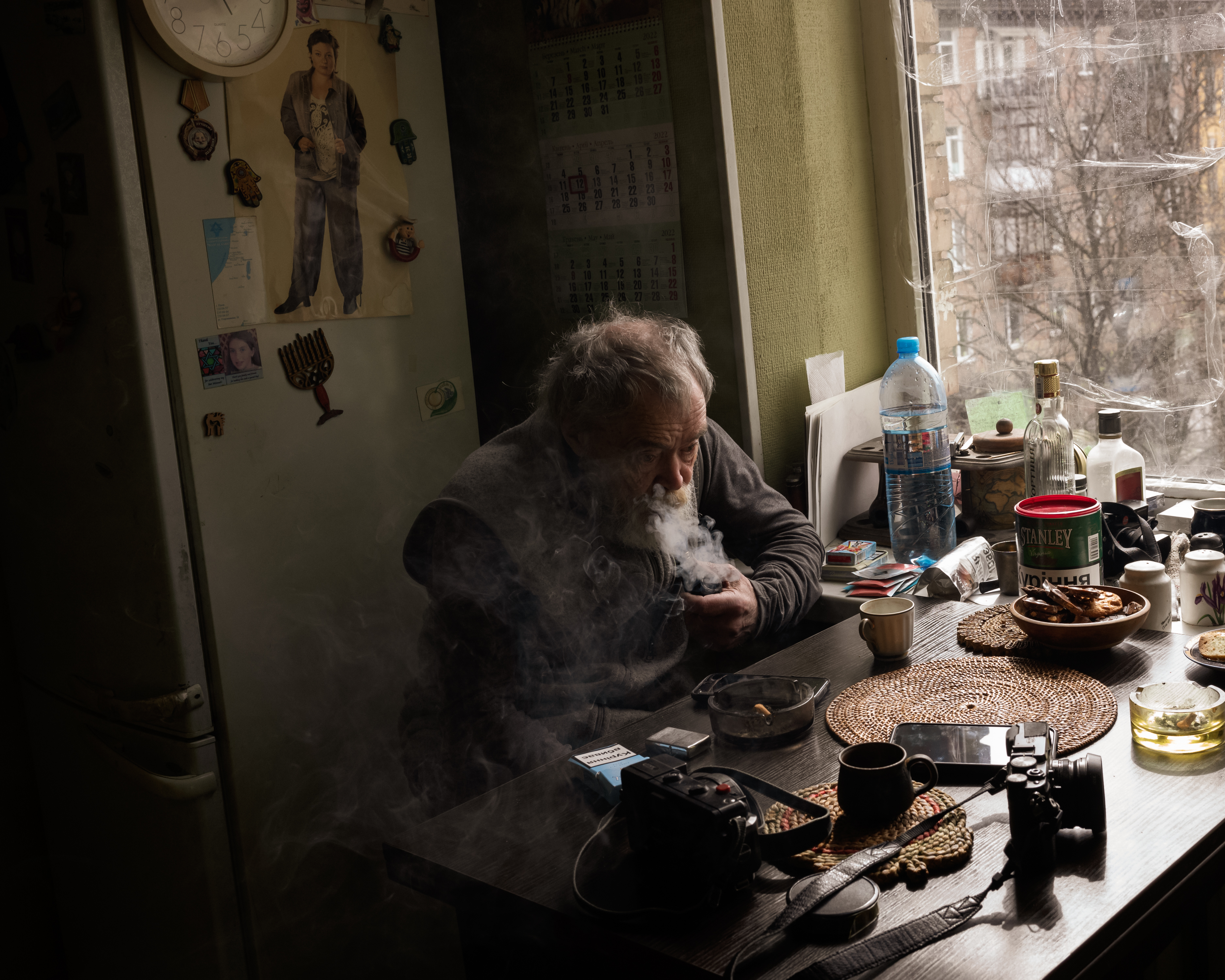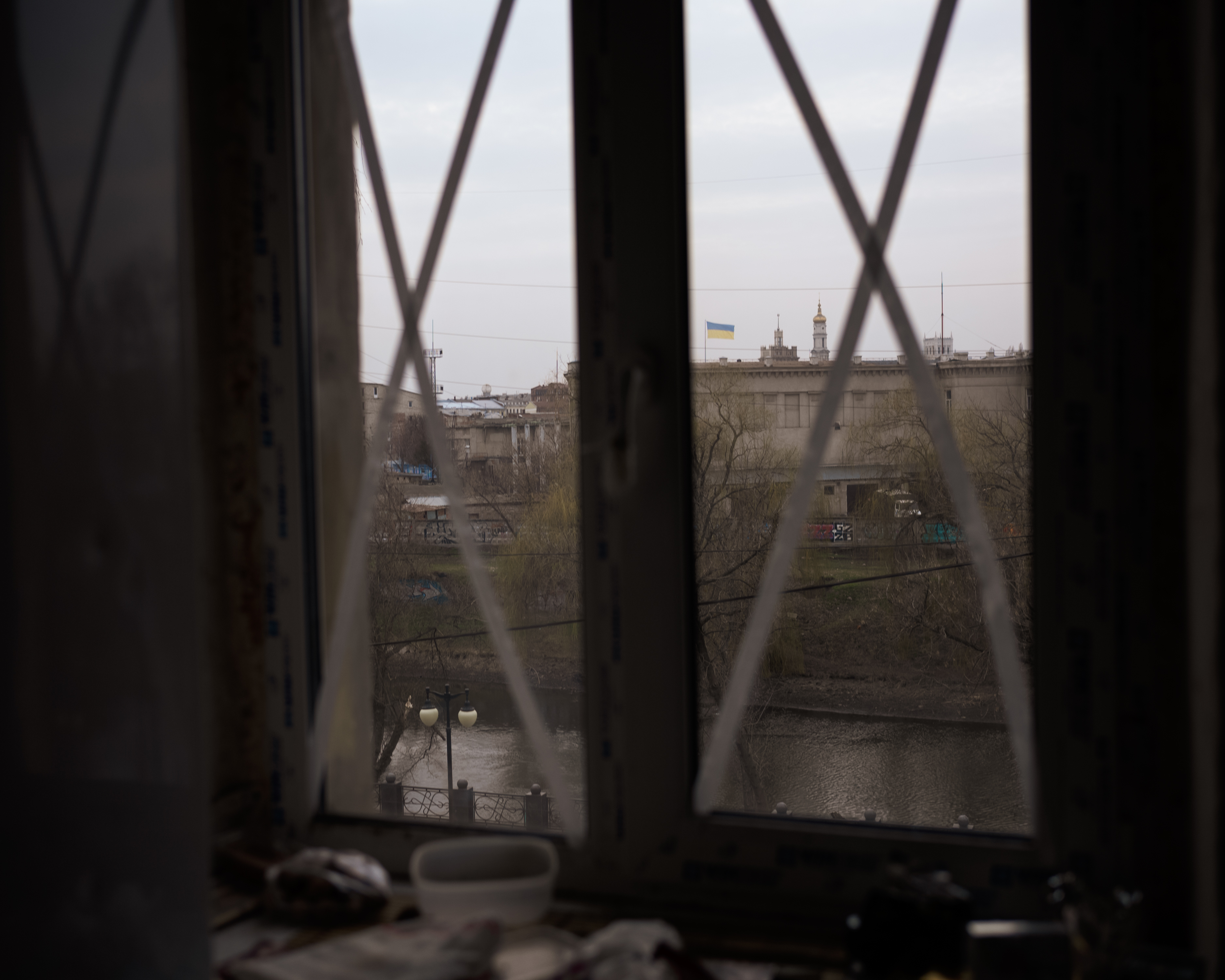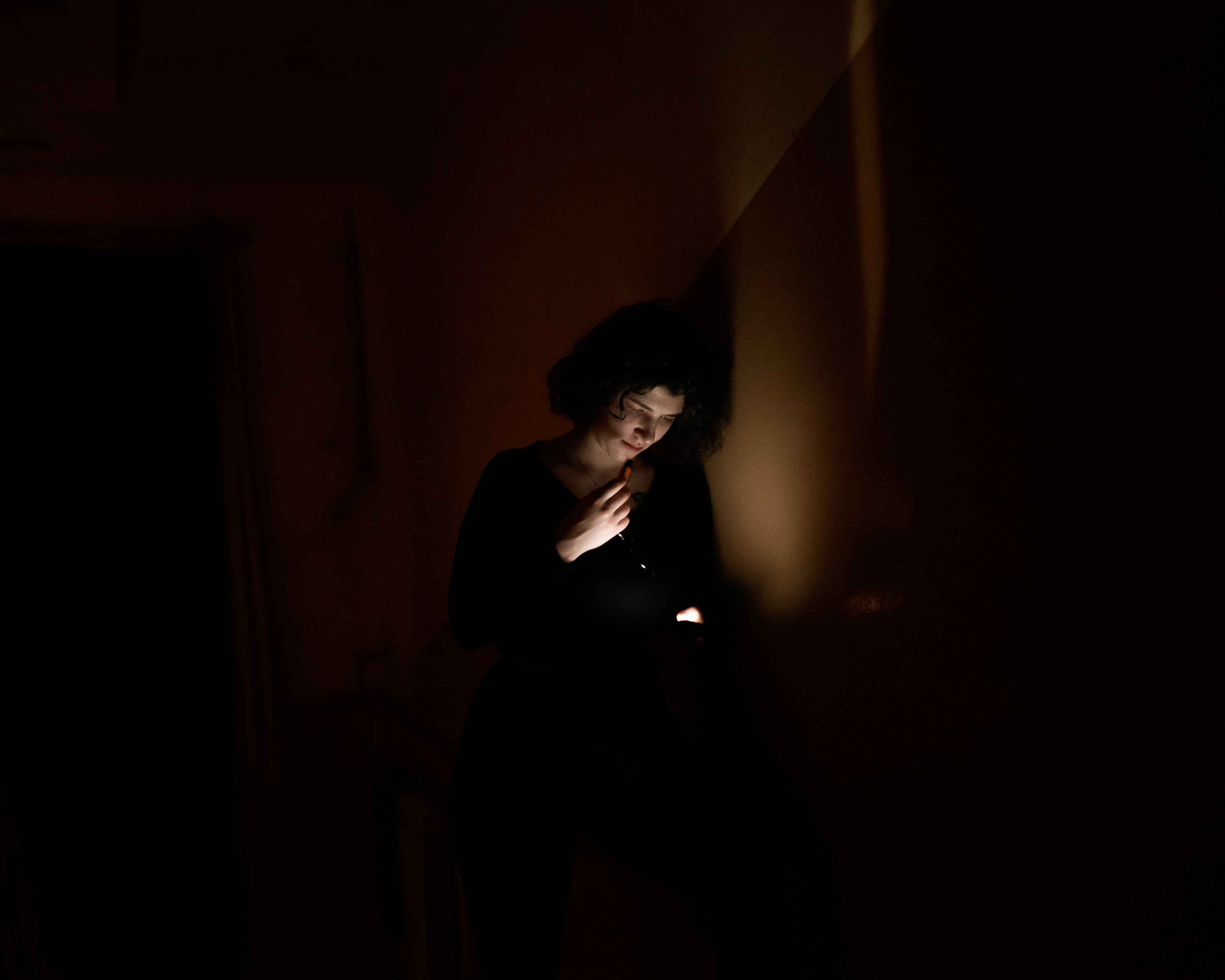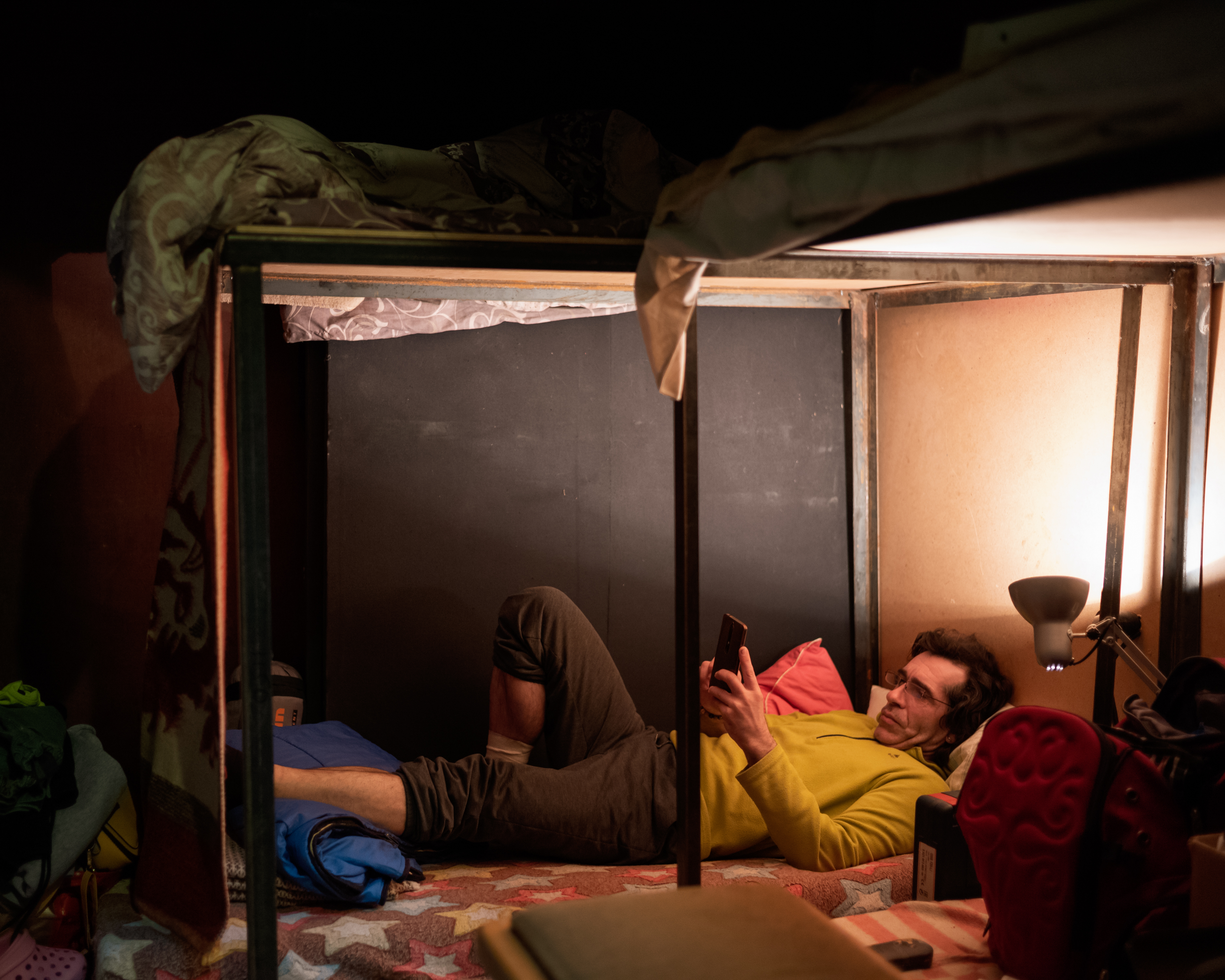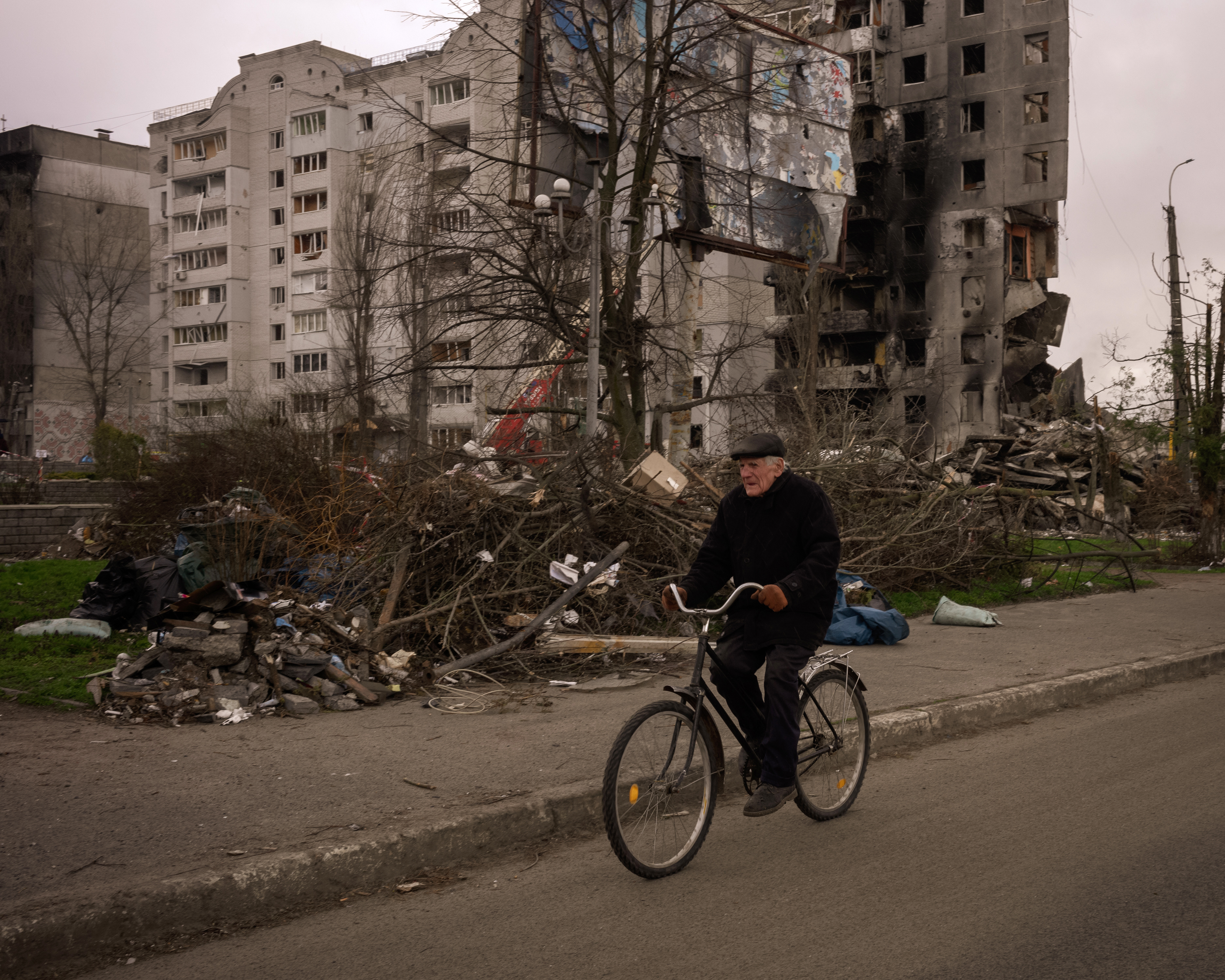It felt as if we had let go of the house like a giant kite;
that it was now flying off to where it wanted to be and there was no reason to snatch it back and return.
And yet there was a reason. Our homes don’t let go of us so easily.
Fot. Agata Grzybowska dla „Gazety Wyborczej”
Do Not Turn On the Lights
We scroll through photos on the screens of our phones, read updates about the power and gas cutting out, the internet going down. We have become accustomed to the fact that somewhere far away, the evil of war is being perpetrated. War is also raging right next door. It invades homes that are not thousands of kilometers away, but tens. It comes unannounced, in the morning, without warning.
Evening. A district of blocks of flats resembling a human anthill. I live between four thin walls. And yet I cannot hear, on the other side of these thin walls, the crying of children, the ringtones of phones, the roar of the vacuum cleaner. On the other side there is only deafening silence. I look out the window. Aside from a few lights, everything is cloaked in darkness. The people have left, or they are sitting in the dark.
On February 24, 2022, in Ukraine, a regulation was introduced, or rather, an urgent public safety request: Do not turn on the lights after sunset.
Fot. Agata Grzybowska dla „Gazety Wyborczej”
I would make you coffee, but you see, there’s no gas, no water. I have no way to boil water. The windows are sealed to prevent broken glass from falling inside.
[Zinaida cries]
Will this tape help?
It will or it won’t. Hopefully not too much glass falls inside and hurts the cat.
At night, we go down to the basement to sleep. But our cat stays in the apartment. We go to the basement in the neighbor’s house next door.
That’s where we’ve been sleeping since March 7. When curfew ends, we return to our place.
Vadim
Vadim took me to his apartment and to his neighbors.
Nine people living in one cellar. The young had gone. The elderly hadn’t the strength to. So they remain, sitting in the damp, the cold, with no electricity, gas, or water.
Fot. Agata Grzybowska dla „Gazety Wyborczej”
Nothing Is Up to You
The terrifying thing about war is that nothing is up to you. You have practically no control over anything that happens.
A stranger comes.
Bombs your house.
Murders your loved ones.
Rapes your daughter, wife, mother…
I rode with a man today who was talking about how when the war is over we will rebuild the country. Although I share this sentiment, I do not allow myself to think about the war ending. I wish it would end as soon as possible. But the thought breaks my heart because it does not end. I do not want this thought to pull me under.
How are we to handle the future when stripped of the past?
When it is knocked out from under us like a gallows stool kicked by the hangman?
To what extent is our past capable of binding itself to us, of keeping us tethered to it, like an anchor lashed to the body of a drowned sailor?
Should we be this dependent on walls so long unwarmed by our breath?
Breath they have not needed.
Fot. Agata Grzybowska dla „Gazety Wyborczej”
The apartment we rent is on the nineteenth floor, so the first reports of war were alarming.
If something happens in Dnipro, attacks, then a building like ours could collapse.
We were afraid. Nineteenth floor. Tall building.
